COVID-19, sense of smell, and zinc
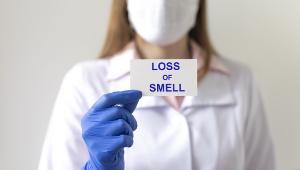 If you lose your sense of smell all of a sudden, it is most likely a sign that you have been infected with the coronavirus, according two large, international studies published in the science journal Chemical Senses. Many COVID-19 patients also lose their sense of taste and even if there are no other complications, it can affect their quality of life. The big question is if there is a link between zinc deficiency, corona infection, and these symptoms. It is already an established fact that zinc is important for our immune defense, for our sense of taste and smell, and as an antioxidant that protects our cells. Also, it is known that zinc deficiencies are rather common and people with unhealthy eating habits, vegetarians, vegans, older people, and diabetics are at increased risk. Birth control pills and certain types of medicine also increase the risk of lacking zinc.
If you lose your sense of smell all of a sudden, it is most likely a sign that you have been infected with the coronavirus, according two large, international studies published in the science journal Chemical Senses. Many COVID-19 patients also lose their sense of taste and even if there are no other complications, it can affect their quality of life. The big question is if there is a link between zinc deficiency, corona infection, and these symptoms. It is already an established fact that zinc is important for our immune defense, for our sense of taste and smell, and as an antioxidant that protects our cells. Also, it is known that zinc deficiencies are rather common and people with unhealthy eating habits, vegetarians, vegans, older people, and diabetics are at increased risk. Birth control pills and certain types of medicine also increase the risk of lacking zinc.
Read more about COVID-19, sense of smell, and zinc.
- Created on .








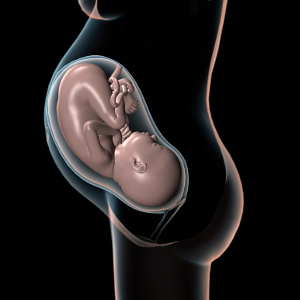



 More and more people in the Western world shift to a plant-based diet but may find themselves challenged when it comes to getting enough of certain essential nutrients. A new German study shows that most vegetarians and vegans get enough
More and more people in the Western world shift to a plant-based diet but may find themselves challenged when it comes to getting enough of certain essential nutrients. A new German study shows that most vegetarians and vegans get enough 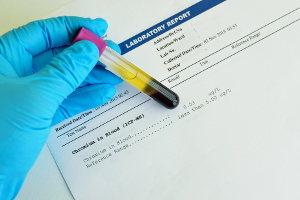 Overweight people often suffer from prediabetes, also known as metabolic syndrome, which is a condition characterized by blood sugar disturbances and cravings that make it difficult to maintain stable body weight. In addition, many people with this condition have low levels of
Overweight people often suffer from prediabetes, also known as metabolic syndrome, which is a condition characterized by blood sugar disturbances and cravings that make it difficult to maintain stable body weight. In addition, many people with this condition have low levels of 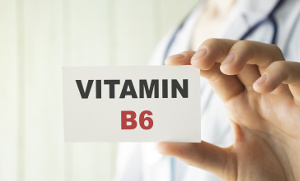
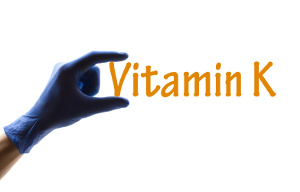 It is already known that severely affected corona patients often lack vitamin D and selenium, both of which are nutrients that are important for the immune system. A team of Danish scientists has now confirmed a Dutch study showing that lack of vitamin K is also widespread among patients with severe cases of the coronavirus. Vitamin K is mainly found in dark, leafy greens. In the body, the nutrient occurs as vitamin K1 and vitamin K2 and they have different functions. Lack of vitamin K or poor utilization of the nutrient may be a result of a poor diet or using certain types of medicine. Although there is no evidence that vitamin K can prevent or mitigate corona infections, the scientists present several interesting hypotheses.
It is already known that severely affected corona patients often lack vitamin D and selenium, both of which are nutrients that are important for the immune system. A team of Danish scientists has now confirmed a Dutch study showing that lack of vitamin K is also widespread among patients with severe cases of the coronavirus. Vitamin K is mainly found in dark, leafy greens. In the body, the nutrient occurs as vitamin K1 and vitamin K2 and they have different functions. Lack of vitamin K or poor utilization of the nutrient may be a result of a poor diet or using certain types of medicine. Although there is no evidence that vitamin K can prevent or mitigate corona infections, the scientists present several interesting hypotheses.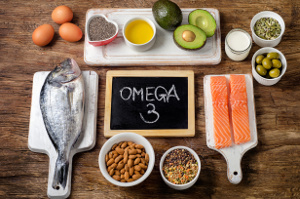 Heart failure affects millions of people worldwide and many die within the first year of being hospitalized with acute heart failure. However, eating a diet that is rich in the omega-3 fatty acid EPA from oily fish and ALA from plant foods such as walnuts is linked to a lower risk of blood clots and early death, according to a new study that is published in Journal of the American College of Cardiology. You can also read more about another compound that improves cardiac function and survival after acute heart failure.
Heart failure affects millions of people worldwide and many die within the first year of being hospitalized with acute heart failure. However, eating a diet that is rich in the omega-3 fatty acid EPA from oily fish and ALA from plant foods such as walnuts is linked to a lower risk of blood clots and early death, according to a new study that is published in Journal of the American College of Cardiology. You can also read more about another compound that improves cardiac function and survival after acute heart failure.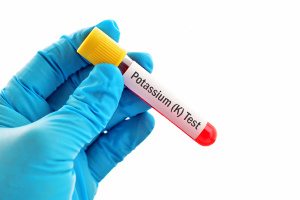 Loss of muscle mass may be a result of a number of factors such as lack of exercise, too little protein, and ageing. Insulin resistance and acid accumulation are also related to loss of muscle mass, and it looks as if increased intake of vegetables with
Loss of muscle mass may be a result of a number of factors such as lack of exercise, too little protein, and ageing. Insulin resistance and acid accumulation are also related to loss of muscle mass, and it looks as if increased intake of vegetables with 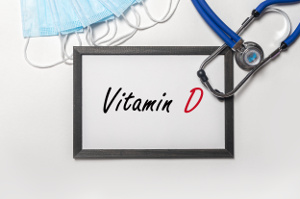 When it comes to battling COVID-19, the main focus is on hygiene, face masks, lockdown, and delayed vaccines. For several months, scientists have urged people to take
When it comes to battling COVID-19, the main focus is on hygiene, face masks, lockdown, and delayed vaccines. For several months, scientists have urged people to take  Migraine is a chronic neurological disorder that can ruin your quality of life and cost you many sick days. Migraine medicine does not necessarily work for all patients and many people get side effects. Therefore, prevention is a better strategy. According to a new study published in Nutrition Journal, zinc supplements have the potential to significantly reduce the frequency of migraine headaches. You can also read about two other nutrients that reduce the frequency and severity of migraine attacks and what it is that triggers them. The most important thing is to find and address the different causes. Diet and lifestyle have a profound impact.
Migraine is a chronic neurological disorder that can ruin your quality of life and cost you many sick days. Migraine medicine does not necessarily work for all patients and many people get side effects. Therefore, prevention is a better strategy. According to a new study published in Nutrition Journal, zinc supplements have the potential to significantly reduce the frequency of migraine headaches. You can also read about two other nutrients that reduce the frequency and severity of migraine attacks and what it is that triggers them. The most important thing is to find and address the different causes. Diet and lifestyle have a profound impact.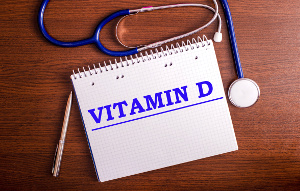
 Pancreatic cancer remains one of the deadliest cancers even with improved therapies. Because many people are diagnosed too late and the prognoses are generally poor it is essential to focus a lot more on prevention for instance by striving to maintain normal weight and avoiding smoking. According to a new meta-analysis published in Nutrition Journal, it appears that large quantities of
Pancreatic cancer remains one of the deadliest cancers even with improved therapies. Because many people are diagnosed too late and the prognoses are generally poor it is essential to focus a lot more on prevention for instance by striving to maintain normal weight and avoiding smoking. According to a new meta-analysis published in Nutrition Journal, it appears that large quantities of  "After about one week of taking the Q10 supplement I could feel a huge difference," says 23-year old Alan Piccini, who has been suffering from extreme fatigue and muscle aches ever since he was a child.
"After about one week of taking the Q10 supplement I could feel a huge difference," says 23-year old Alan Piccini, who has been suffering from extreme fatigue and muscle aches ever since he was a child. “Taking capsules with co-enzyme Q10 has freed me of the severe side effects of my cholesterol lowering medicine,” Mrs Franken explains.
“Taking capsules with co-enzyme Q10 has freed me of the severe side effects of my cholesterol lowering medicine,” Mrs Franken explains.